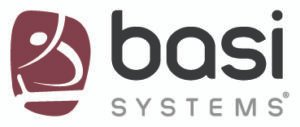Industry
Spotlight
 Riding the Pilates Wave: Lessons From Scaling an Industry
Riding the Pilates Wave: Lessons From Scaling an Industry

Growth is exciting—but it also magnifies flaws. In Pilates, as in any high-growth market, leadership must stay ahead of the curve. Not just to ride the wave, but to shape its direction and uphold the quality the industry is known for.

 Riding the Pilates Wave: Lessons From Scaling an Industry
Riding the Pilates Wave: Lessons From Scaling an Industry
Pilates is booming.
At every industry event one of the buzzwords is Pilates. Every major city is seeing an explosive growth in Pilates studios. Extrapolating data from various reports suggests a double-digit growth in Pilates studios globally, and an equipment market that has doubled the last years. Pilates participation rates have almost doubled two years in a row (ClassPass: 92% and 84% growth respectively). Since 2019 Pilates searches increased over 400%.
But the infrastructure in place is scrambling to catch up. With the rapid growth the number of qualified instructors is insufficient. Markets are flooded with counterfeit equipment at dumping prices; quality is promised but rarely delivered, leading to member disappointment and a detrimental experience. Bonafide equipment providers have fluctuating lead times, as market demand outstrips production capacity.
Think of an old race car: when warming up, all systems are in the green. But the faster it goes, the more pressure is placed on it. The car begins to shake, and any poorly assembled part is likely to fail. If not addressed in time, the entire vehicle risks breaking down.
Here are 6 lessons Pilates offers fast-growing industries:
Ensure buffer capacity and fix your constraint
Growth is limited by your weakest link. Your value chain must be resilient and ready to absorb shocks. Aiming for maximum capacity utilization sacrifices flexibility, leaving little room to handle spikes in demand or disruptions in supply. The Pilates industry learned this the hard way: as demand surged, fragile supply lines were exposed, lead times ballooned, and growth became constrained. Boosting performance doesn’t always require a full system redesign or high investments, a focused effort on fixing your constraint will increase your output. Scaling businesses must build the buffers and systems needed to meet the demands of tomorrow.
- Manage your data well and set the right priorities
What gets measured gets managed. Manage your data well and set the right priorities, as that is they key to unlocking sustainable growth. Focus on a handful of key metrics that truly drive performance, and review them consistently. Align everyone in the team around one main priority, supported by clear, measurable outcomes. This sharpens focus, improves accountability, and ensures your team is moving in the same direction.
- When setting priorities: prioritize quality
When demand surges, speed at the expense of quality is short-term thinking. Counterfeit Pilates equipment and low-quality knockoffs may be cheaper and quicker to produce, but they undermine customer trust and ultimately erode market credibility. Sure, you can buy three counterfeit reformers for the price of one original, but you’ll need to replace them more often. Meanwhile, your member experience suffers, as clients are exercising on subpar equipment. Long-term customer and member loyalty is built on quality, not speed.
- Manage risk with diversified sourcing strategies
Global supply chains are vulnerable, whether due to geopolitical events, inflation, or raw material shortages; all of which we’ve seen in recent years. Strengthen relationships with suppliers and diversify risk by avoiding over-reliance on any single source. Pilates brands that prioritized strategic sourcing early on are now more resilient and better positioned to scale within acceptable lead times.
- Invest in people
It’s not infrastructure, brands, or investors that hold a company or an industry together. It’s people. The biggest bottleneck in Pilates today is talent. There simply aren’t enough skilled instructors to meet the growing demand. In any fast-growing business, if you don’t invest in training, growth will stall. Culture, learning, and leadership matter more than ever when the pace accelerates. This applies for all roles; production, quality assurance, and commercial roles. Investing in people consistently delivers strong returns, both short and long term.
- Overcommunicate, then communicate again
Customers need clarity. Teams need alignment. Partners need visibility. As complexity increases, so does the need for deliberate, structured communication. One of the biggest pain points in the Pilates industry has been unclear timelines and unmet expectations, most of which could be solved by consistent, transparent communication, both internally and externally.
Growth is exciting—but it also magnifies flaws. In Pilates, as in any high-growth market, leadership must stay ahead of the curve. Not just to ride the wave, but to shape its direction and uphold the quality the industry is known for.
Because there’s only one way to go: onwards and upwards!
About Matthijs Wilhelmus
Matthijs is the CEO of BASI Systems, a premium global Pilates equipment company known for combining high-performance engineering with elegant design. With a background as a professional athlete (2002 World Champion Ju-Jitsu) and a passion for purposeful leadership, Matthijs brings a unique blend of discipline, strategy, and creativity to the wellness industry. Under his leadership, BASI Systems has expanded internationally and introduced innovative products that set new standards in Pilates equipment. He thrives in fast-scaling environments and is driven by a belief in building resilient systems, empowering people, and staying ahead of industry trends. Matthijs is also a frequent speaker at business and wellness events, where he shares insights on growth, leadership, and operational excellence.
Industry Opinion Leaders
Want to Contribute a Piece to Our Spotlight Features?
Contact us to find out more.







